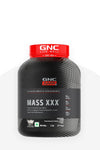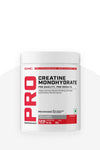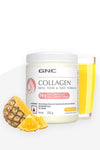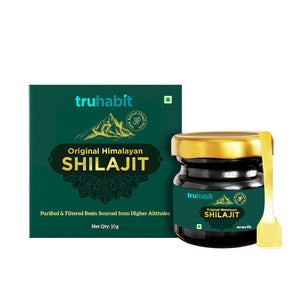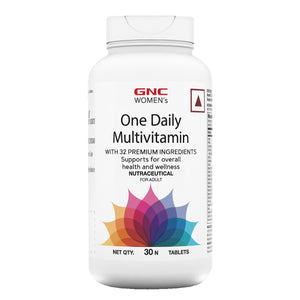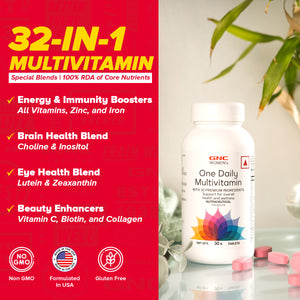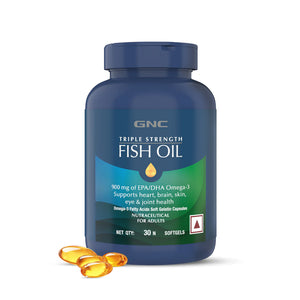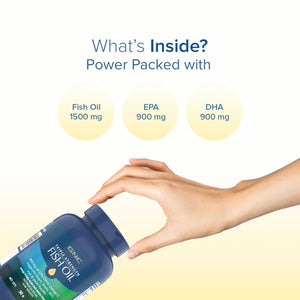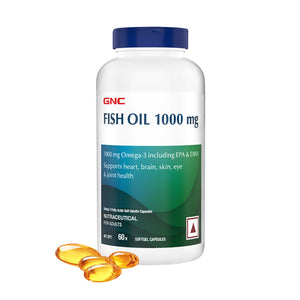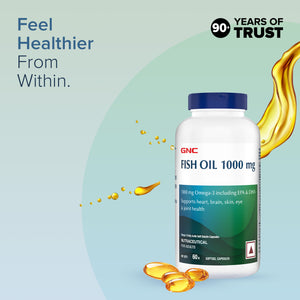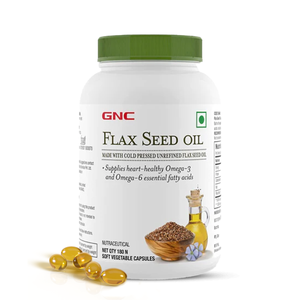
It seems everyone is talking about omega-3 fatty acids and their benefits. Omega-3 fatty acids are a type of polyunsaturated fatty acids and one of the most important essential fatty acids. It plays an important role in all our life stages and thus, very essential to include omega 3 rich source in our diet. Natural sources of omega – 3 fatty acids include fatty fishes like mackerel, tuna, sardines and some vegetarian sources like flaxseeds, soybean, walnuts etc.
Let’s understand, why we need to add omega-3 supplement in our diet and how should we choose?
There are three important omega 3 fatty acids (ALA, EPA, and DHA).
EICOSAPENTAENOIC ACID (EPA): An important fatty acid for the circulatory system. Abundant in oily fish, algae and grass. EPA has 20 carbon atoms.
DOCOSAHEXAENOIC ACID (DHA): An important fatty acid found in eye and brain membranes. It plays an important role for vision and brain function and is vital for healthy heart function. DHA is also found abundantly in oily fish, algae and grass. DHA has 22
carbon atoms.
ALPHA LINOLENIC ACID (ALA): Found abundantly in flax seeds, also found in walnuts and canola oil. To a degree, ALA can be converted into EPA in the body. ALA has 18 carbon atoms.
Studies suggest that the combination of EPA and DHA is best for overall health e.g., preventing heart disease and depression, promoting healthy brain development. ALA is found in plant sources which is the precursor of EPA, but the conversion rate of ALA to EPA and DHA is almost negligible and hence more the reason to consume EPA and DHA directly. EPA and DHA are two active ingredients of omega-3 fatty acids, which are responsible for the role of a healthy heart and other key benefits. The first published study highlighting the benefits of EPA and DHA dates back to 1971.
One of the natural sources is fatty fishes, but due to increasing industrial pollution, we cannot rely on natural sources like fatty fishes due to the presence of heavy metals like mercury, lead in their system.
It is important to read the label before you buy any omega-3 supplement:
- Go for the supplement which has EPA and DHA in their omega 3 fatty acid composition.
- The Indian Council of Medical Research (ICMR, 2010) recommends optimal intake of 250mg – 2g of EPA and DHA to reduce any heart-related diseases, make sure your daily serving of the supplement meets the requirement.
- Higher amounts of EPA are associated with reducing the inflammation and thus helps improves immunity and joint health. Check the label to understand the quantity of EPA individually; it needs to be on the higher side.
- The omega 3 Supplement should contain a minimum of 250 mg of DHA to support heart, brain and eye health. (EFSA, 2010)
- Always check the quantity and the serving size of the products. Forex. How many capsules a day will provide me required EPA+DHA.
- If you are a non-vegetarian or a fish-eater, always opt for fish oil supplements with better EPA + DHA combination, with no fishy burps and low detectable levels of mercury, cadmium, lead and PCBs
- Fish oils are one of the best omega 3 supplements as compared to any other supplement.
- Fish oils supplements providing Vitamin D, CoQ 10 and A along with omega 3 would be one of the best choices. Go for it!
- If you are a pure vegetarian, opt for flaxseed oil supplement which will provide a sufficient amount of omega 3 fatty acids for your overall good health.



